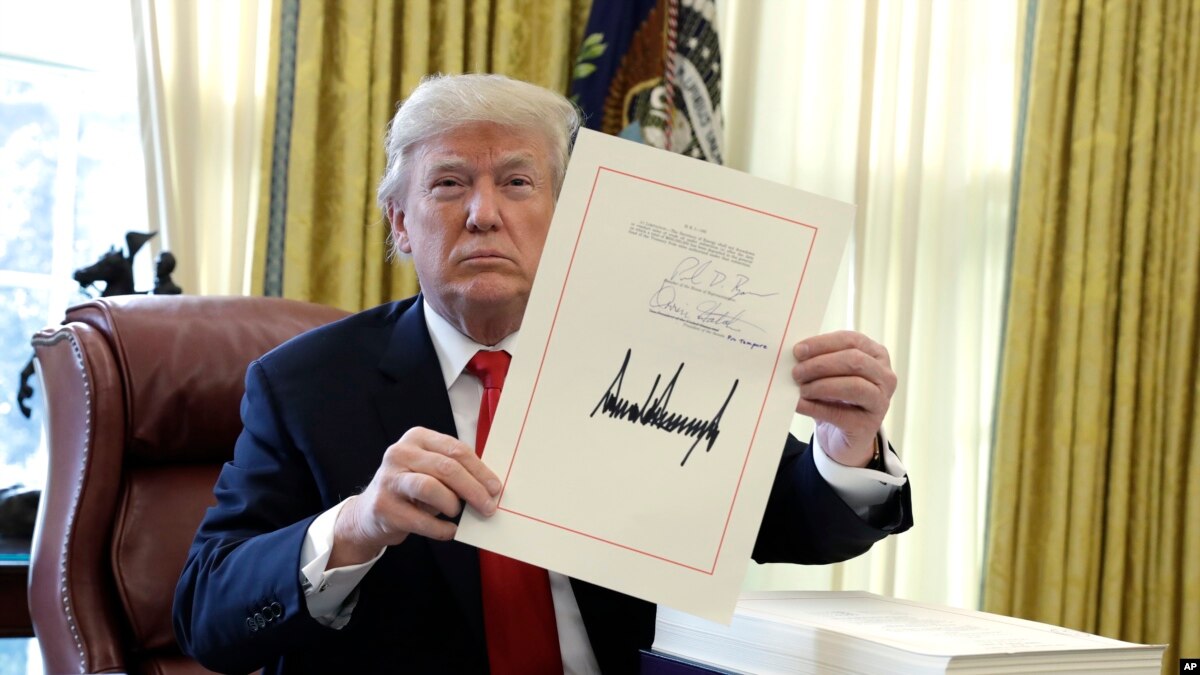
A Republican-led panel in the U.S. House of Representatives voted Thursday to make the individual tax cuts from President Donald Trump's 2017 tax overhaul permanent, a move seen by some as a bid to help GOP candidates in the Nov. 6 congressional elections.
Members of the tax-writing House Ways and Means Committee voted 21-15 along party lines to send the measure to the House floor for a full chamber vote expected by Oct 1. But the tax cuts are likely to be dead on arrival in the Senate, where they would need Democratic support to pass.
The tax overhaul that Trump signed into law last December, known as the Tax Cuts and Jobs Act, gave permanent tax relief to corporations but set individual cuts that will expire after 2025.
The measure to make the individual cuts permanent are part of a three-pronged legislative package dubbed "Tax Reform 2.0," which Republicans introduced three days ago. The panel was due to address two other prongs, involving retirement savings and tax incentives for startup businesses, later on Thursday.
House control
Republicans are in danger of losing control of the House to Democrats in November. Voters favor Democratic candidates over Republicans 52 percent to 38 percent, according to a Quinnipiac University National Poll released this week. Democrats need a net gain of at least 23 seats to win a majority in the House.
Republicans insist that Trump's tax overhaul has helped boost the economy. But their message has been undercut by worries about Trump's policy on trade tariffs and a lack of evidence that tax cuts have delivered promised pay increases to workers.
House Republicans said the legislation on the tax cuts would add to economic momentum and create 1.5 million new jobs in the long run, citing numbers from the nonpartisan Tax Foundation.
But the legislation also carries risks for Republican fiscal conservatives. Making individual tax cuts permanent would add another $630 billion to the deficit by 2019, according to the congressional Joint Committee on Taxation. That would bring the total cost of tax cuts under Trump to well over $2 trillion in lost government revenue.
Democrats decried the legislation, saying it would mainly benefit the wealthy, expand the deficit and lead to cuts in the Social Security and Medicare programs for the elderly.
Committee Republicans rejected several Democratic amendments that would have directed Congress to obtain Trump's tax returns; provided tax relief to disaster victims and the sick; protected benefits for the elderly; raised taxes on the highest incomes; and eliminated a cap on the federal deduction for state and local tax payments.
/cloudfront-us-east-1.images.arcpublishing.com/bostonglobe/VNG7YMZTRWJ5WBFTJ5NVETPCQI.jpg)
No comments:
Post a Comment